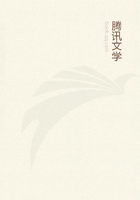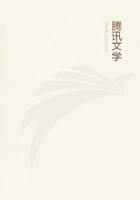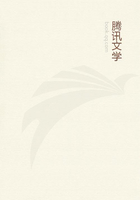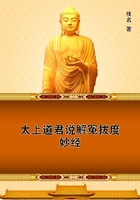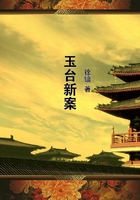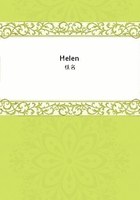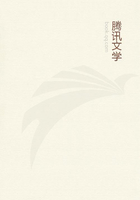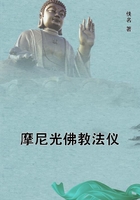*****Note--This proposition can also be proved from the Corollary to II. xvii. Whenever we remember anything, even if it does not actually exist, we regard it only as present, and the body is affected in the same manner; wherefore, in so far as the remembrance of the thing is strong, a man is determined to regard it with pain; this determination, while the image of the thing in question lasts, is indeed checked by the remembrance of other things excluding the existence of the aforesaid thing, but is not destroyed: hence, a man only feels pleasure in so far as the said determination is checked: for this reason the joy arising from the injury done to what we hate is repeated, every time we remember that object of hatred. For, as we have said, when the image of the thing in question, is aroused, inasmuch as it involves the thing's existence, it determines the man to regard the thing with the same pain as he was wont to do, when it actually did exist. However, since he has joined to the image of the thing other images, which exclude its existence, this determination to pain is forthwith checked, and the man rejoices afresh as often as the repetition takes place.
This is the cause of men's pleasure in recalling past evils, and delight in narrating dangers from which they have escaped.
For when men conceive a danger, they conceive it as still future, and are determined to fear it; this determination is checked afresh by the idea of freedom, which became associated with the idea of the danger when they escaped therefrom: this renders them secure afresh: therefore they rejoice afresh.
XLVIII. Love or hatred towards, for instance, Peter is destroyed, if the pleasure involved in the former, or the pain involved in the latter emotion, be associated with the idea of another cause: and will be diminished in proportion as we conceive Peter not to have been the sole cause of either emotion.
Proof--This Prop. is evident from the mere definition of love and hatred (III. xiii. note). For pleasure is called love towards Peter, and pain is called hatred towards Peter, simply in so far as Peter is regarded as the cause of one emotion or the other. When this condition of causality is either wholly or partly removed, the emotion towards Peter also wholly or in part vanishes. Q.E.D.
XLIX. Love or hatred towards a thing, which we conceive to be free, must, other conditions being similar, be greater than if it were felt towards a thing acting by necessity.
Proof--A thing which we conceive as free must (I. Def. vii.) be perceived through itself without anything else. If, therefore, we conceive it as the cause of pleasure or pain, we shall therefore (III. xiii. note) love it or hate it, and shall do so with the utmost love or hatred that can arise from the given emotion. But if the thing which causes the emotion be conceived as acting by necessity, we shall then (by the same Def. vii. Part I.) conceive it not as the sole cause, but as one of the causes of the emotion, and therefore our love or hatred towards it will be less. Q.E.D.
*****Note--Hence it follows, that men, thinking themselves to be free, feel more love or hatred towards one another than towards anything else: to this consideration we must add the imitation of emotions treated of in III. xxvii., xxxiv., xl. and xliii.
L. Anything whatever can be, accidentally, a cause of hope or fear.
Proof--This proposition is proved in the same way as III. xv., which see, together with the note to III. xviii.
*****Note--Things which are accidentally the causes of hope or fear are called good or evil omens. Now, in so far as such omens are the cause of hope or fear, they are (by the definitions of hope and fear given in III. xviii. note) the causes also of pleasure and pain; consequently we, to this extent, regard them with love or hatred, and endeavour either to invoke them as means towards that which we hope for, or to remove them as obstacles, or causes of that which we fear. It follows, further, from III. xxv., that we are naturally so constituted as to believe readily in that which we hope for, and with difficulty in that which we fear; moreover, we are apt to estimate such objects above or below their true value. Hence there have arisen superstitions, whereby men are everywhere assailed. However, I do not think it worth while to point out here the vacillations springing from hope and fear; it follows from the definition of these emotions, that there can be no hope without fear, and no fear without hope, as I will duly explain in the proper place. Further, in so far as we hope for or fear anything, we regard it with love or hatred; thus everyone can apply by himself to hope and fear what we have said concerning love and hatred.
LI. Different men may be differently affected by the same object, and the same man may be differently affected at different times by the same object.
Proof--The human body is affected by external bodies in a variety of ways (II. Post. iii.). Two men may therefore be differently affected at the same time, and therefore (by Ax. i. after Lemma iii. after II. xiii.) may be differently affected by one and the same object. Further (by the same Post.) the human body can be affected sometimes in one way, sometimes in another; consequently (by the same Axiom) it may be differently affected at different times by one and the same object. Q.E.D.
*****Note--We thus see that it is possible, that what one man loves another may hate, and that what one man fears another may not fear; or, again, that one and the same man may love what he once hated, or may be bold where he once was timid, and so on.

